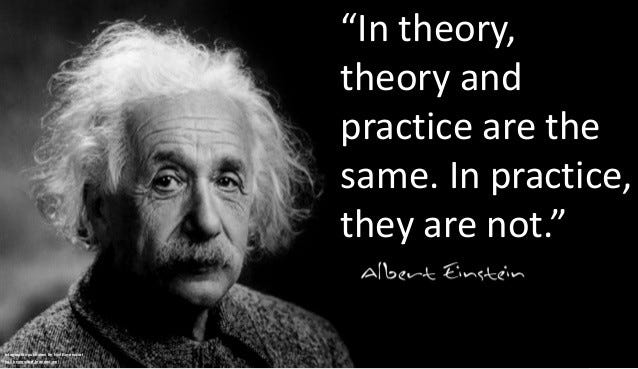Entrepreneurship can’t be taught
Entrepreneurship can‘t be taught
Business skills can be taught; entrepreneurial qualities like grit and risk tolerance are inborn.
So can entrepreneurship be taught? Most entrepreneurs and investors seem to think the answer is ‘no’. Most academicians and students think the answer is ‘yes’.
I sincerely believe that exceptional entrepreneurs have what it takes in them from the day they were born, and I think most psychologists will agree with me. We’re talking about the unicorns; the ones that make it to a respectable IPO. Why? Let me explain with a simple but intuitive analogy.
Entrepreneurs are born, not bred
How does one cultivate a great world class musician, say a pianist? First you gather all the young kids who can play the instrument. You then ask respectable piano teachers to evaluate who had the innate talent and aptitude to go far. And then you get these teachers to take them under their wings and put them through years of rigorous training and dedication to the craft.


You do not however, make playing the piano seem very cool and glamorous to attract general interest in all children, get a bunch of people who have never played the piano to evaluate them, and then choose a large number as apprentices and hope that eventually a few of them would achieve greatness.
The same could be said of any other achievements that require a lot of talent, determination and passion to succeed. I believe being a successful entrepreneur falls into such a category, having failed miserably in one attempt, achieved minor success in another, and met and talked with many who fell into both ends of the spectrum.
Encouraging entrepreneurial ‘spirit’
Some governments or academic institutions believe that encouraging entrepreneurial spirit is the key to creating more successful entrepreneurs. I believe that is a mistake. Getting more people to try does not increase the odds of getting successful startups .


The Oxford Dictionary defines ‘spirit’ as “the prevailing or typical quality, mood or attitude of a person, group or period of time”. By this very definition it implies that any ‘spirit’ is temporary in nature.
Rather than developing an overall sense of ‘entrepreneurial spirit’, it might be better to identify individuals with inherently strong entrepreneurial qualities that will last — passion, grit, resourcefulness, risk-taking aptitude — and giving them the encouragement and assistance they need to fully develop their potential over the long and obstacle laden process they will surely face.
It’s cool to do a startup
With big money and so much glamour propaganda injected into entrepreneurship these days, I have met many young founders doing startups because it is now ‘cooler’ and less boring than working in a big corporation. They also tend to choose popular themes such as Artificial Intelligence or Blockchain because it’s easier to get investors’ attention. They quote Jack Ma or Steve Jobs as role models and use popular lingo like solving “pain points” that venture capitalists love to hear in pitches.
